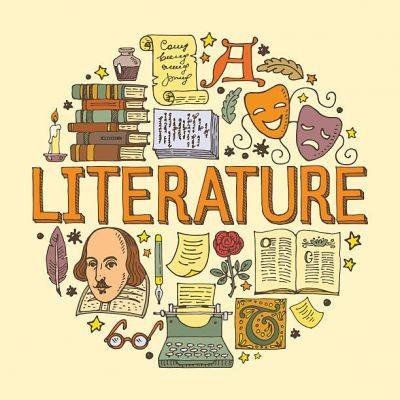English Literature Student Stereotypes
Picture taken from https://pin.it/1dG7fkc
What do others think about the English literature major? Everyone knows that this major often be associated with books, essays, and verbal communication with English. Those things are accurate, though English literature is so much deeper and broader than just that. However, many people think those are all English literature students do. The depth of knowledge about the English literature major in society made English known as one of the easiest majors, or the major with the lowest job prospects (well, of course, thanks to many stereotypes), etc. Here are some other stereotypes and assumptions of an English literature major:
- English literature students will end up being a teacher or a translator
When we tell people that we want to take English literature as our major, their first reaction would be like “Oh, so you want to be a teacher or a translator.” And to be honest, that’s what I thought first too before I did the research to find out more. All I can think of what an English literature graduate becomes is either teacher or translator. This happens because people think English literature is a study of language only, meaning that we only learn how to apply both oral and written English fluently. But the fact is, as English literature students, we also gain the ability to apply the concepts of cross-cultural, cultured-business context, literature, and language, as well as the ability to analyze social issues. Therefore, the job prospects for English literature graduate is as high as the other majors, it includes:
- Journalist
- Content writer and freelance writer
- Book editor
- Social media manager and copywriter
- Advertising account executive
- Public relation manager
- Marketing manager
- Broadcaster
- And many more
Surprisingly, the career path of English literature graduate is much more vast than you think. Moreover, it is flexible and can be applied in many other departments.
- The materials are similar to what we studied in school
A lot of people think that the materials English students learn are the harder version of what we learn in school and English tuition, that’s why they think students in this major would end up as teachers. Grammar, reading comprehension, creative writing, those are some of the materials we learn in school, and yes, we do study those as English literature students as well. However, those are only one-eight of what English literature students actually study. The courses are divided into several types. First, we study the language itself, such as grammar and the branches of linguistics. Second, we learn about literature, this may include history, drama, poetry, and philosophy. Third, we study social issues and criticism as well as culture between Western and Indonesia, which may include critical thinking. Fourth, we learn English for professional purposes such as publishing, advertising, broadcasting, creative writing.
Perhaps, if we look back to the courses English literature students have, the materials may be linked to phycology, sociology, marketing, and public relation.
- English literature students are grammar freaks and have perfect English
As an English literature student, I admit that once in a while, I do spot some grammatical mistakes in any kind of written material. However, the only mistakes I spot are the obvious ones. Note that this happens when I read something carefully as I absorb the meaning of the texts, and when there is an obvious mistake, which anyone, either English literature students or not, could spot. Of course, in an instant, we will correct the grammatical error even though most of the time we just let it slide and keep it to ourselves. Meanwhile in daily conversation, that is not something we really pay attention to. Besides, the structure of the language in daily conversation is looser and not as structuralized as formal or professional English, so grammar is the last thing people cared about in the daily conversation.
- English literature students are walking dictionaries
People used to ask me what’s the English translation of a word, and when I said I didn’t know, their reaction was as if I should’ve known since I study English. Surprisingly, English literature students are not human dictionaries. In fact, English students don’t have a course that is only about memorizing vocabulary. Memorizing vocabulary is only what primary students do. We learn new vocabularies as we read, interact and hear. So please don’t expect literature students—not only English but also every other language—to automatically excel in every word since we’re taking that language major.
So, these are some of the English literature student stereotypes. What do you think? Do you think that some of these stereotypes are accurate? Or do you think that the stereotypes are completely absurd?
At the end of the day, studying English is as complicated as other majors and flexible to fit in other



